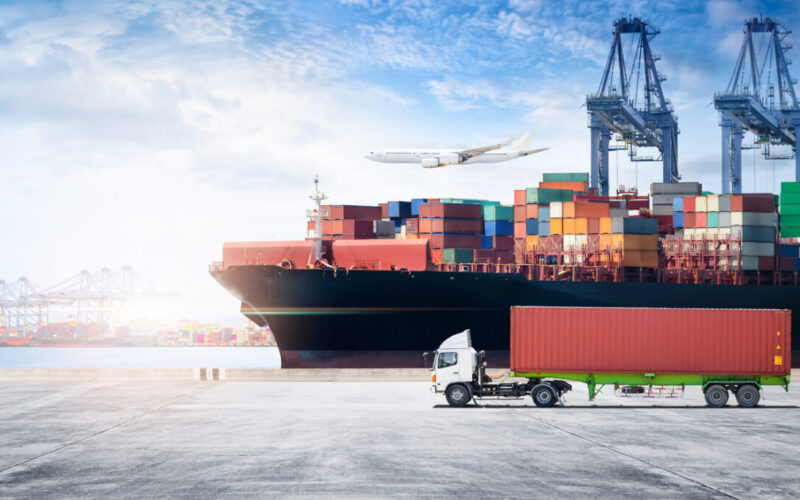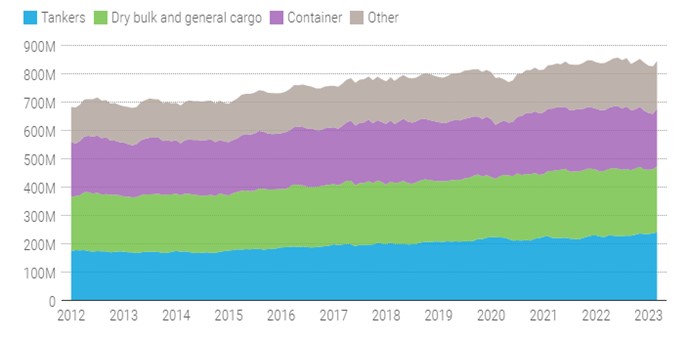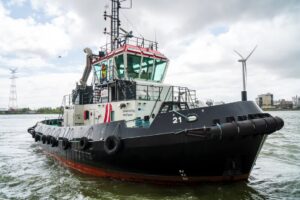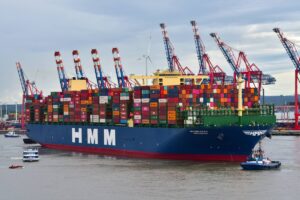The United Nations Conference on Trade and Development (UNCTAD) has called for a “just and equitable transition” to a decarbonised shipping industry in its Review of Maritime Transport 2023 launched ahead of World Maritime Day.
The agency highlighted the pressing need for cleaner fuels, digital solutions, and an equitable transition to combat continued carbon emissions and regulatory uncertainty in the shipping industry.
The shipping industry accounts for over 80 per cent of the world’s trade volume and nearly 3 per cent of global greenhouse gas (GHG) emissions, with emissions escalating by 20 per cent in just a decade.
UNCTAD Secretary-General, Rebeca Grynspan, said: “Maritime transport needs to decarbonise as soon as possible, while ensuring economic growth.
“Balancing environmental sustainability, regulatory compliance and economic demands is vital for a prosperous, equitable and resilient future for maritime transport,” Grynspan added.
The organisation underscored the importance of system-wide collaboration, swift regulatory interventions, and robust investments in green technologies and fleets.
While the transition to cleaner fuels is in its early stages, with nearly 99 per cent of the global fleet still reliant on conventional fuels, the report cites promising developments, including 21 per cent of vessels on order designed for alternative fuels.
READ: UNCTAD: Demand/supply mismatch requires more careful investments
UNCTAD reported that an additional $8 billion to $28 billion will be required annually to decarbonise ships by 2050.
Even more substantial investments, ranging from $28 billion to $90 billion annually, will be needed to develop infrastructure for 100 per cent carbon-neutral fuels by 2050.
Full decarbonisation could elevate annual fuel expenses by 70 per cent to 100 per cent, potentially affecting small island developing states (SIDS) and least developed countries (LDCs) that heavily rely on maritime transport, according to UNCTAD.
To ensure an equitable transition, UNCTAD calls for a universal regulatory framework applicable to all ships, irrespective of their registration flags, ownership, or operational areas, thereby avoiding a two-speed decarbonisation process and maintaining a level playing field.
Shamika N. Sirimanne, UNCTAD’s Director of Technology and Logistics, said: “Economic incentives, such as levies or contributions paid in relation to shipping emissions may incentivise action, can promote the competitiveness of alternative fuels and narrow the cost gap with conventional heavy fuels.
“These funds could also facilitate investments in ports in SIDS and LDCs, focusing on climate change adaptation, trade and transport reforms, as well as digital connectivity.”
READ: Supply Chain Sustainability: How to Optimise Operations to Reduce Waste
UNCTAD further expressed concerns over the ageing global shipping fleet – at the start of 2023, commercial ships were on average 22.2 years old, two years older than a decade ago. More than half of the world’s fleet is over 15 years old.
Ship owners face the challenge of renewing the fleet without clarity regarding alternative fuels, green technology, and regulatory regimes to guide ship owners and ports, while port terminals face similar challenges in vital investment decisions, UNCTAD reported.
In addition to cleaner fuels, UNCTAD underscores the role of digitalisation in accelerating decarbonisation efforts, citing the benefits in enhancing efficiency and reducing delays.
“Investing in digitalisation and technology will improve predictability and reliability of shipping, and applying technologies such as AI, machine learning, blockchain and the internet of things will result in performance optimisation for monitoring, routing, speed and predictive maintenance, which can all help accelerate decarbonisation,” Sirimanne added.
Earlier this summer, the Council of the European Union (EU) officially approved the conclusive regulations for climate-neutral shipping, as outlined in the FuelEU maritime proposal. The new regulations will see an increase in renewable and low-carbon fuels that is anticipated to reduce the carbon footprint of the maritime sector in the EU.










